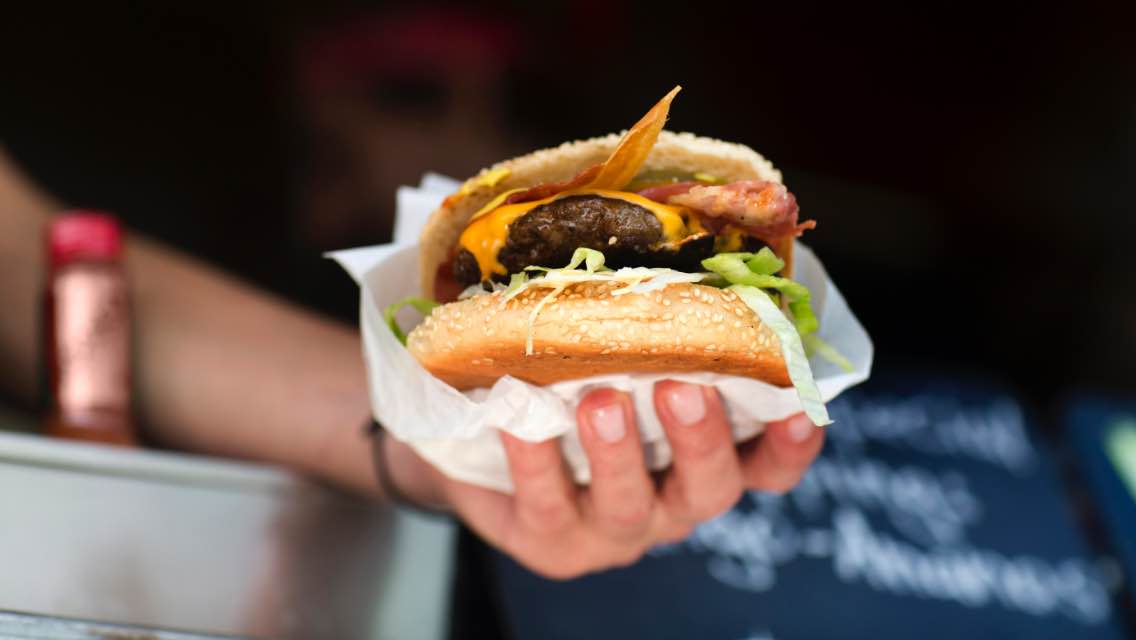As a longtime dietitian who has helped many clients embark on new healthy eating plans, I’ve observed that many people get worked up with nervousness or anticipation about what’s to come. Right or wrong, there’s often an assumption of impending deprivation. Then, the inevitable question surfaces:
Are “cheat meals” a good idea to include in my approach?
As with most nutrition concepts, the “right” answer is highly individualized and dependent on a variety of factors. However, I do want to preface this with an important note: I do not typically like to use the word “cheat.”
While “cheat meal” is a common term, it’s one that comes with some negative attachment. What we’re really referring to here is an off-plan meal where your food choices are made purely for enjoyment rather than to support your health goals.
As a dietitian, my intent is to help my clients find and follow a sustainable nutrition approach that works for them — and that almost always includes some level of flexibility and wiggle room with no judgment attached.
With that in mind, here are the most important things to think about before deciding whether or not to include deliberate off-plan meals as a part of your program.
Is your current nutrition approach sustainable — or problematic?
Determining whether or not an off-plan meal is useful begins with evaluating your current plan.
A sustainable nutrition protocol is one that can be done willingly for the long-haul — with enjoyment and the necessary flexibility for your desired goals and lifestyle.
As I noted earlier, the term “cheat” has an implicit negative connotation and implies a forbidden action or betrayal of some sort. When thinking about your current nutrition habits and focus areas, there may be an underlying issue with your plan if you feel like there’s something you want to cheat on or escape from.
Is the trade-off worth it?
For most, an off-plan meal often consists of processed, highly palatable foods: a hot delivery pizza, loaded cheese fries, a gargantuan burger, creamy mac and cheese, salty chips, fresh baked brownies, a favorite ice cream, or a drive-thru feast from a fast-food restaurant.
These types of foods, by design, create immediate sensory excitement. You can usually smell them from across the room and they trigger instantaneous feelings of pleasure. As a result, consumed portions are often hard to control.
What I’ve found is that most people don’t stop ahead of time to think about the full spectrum of the experience that comes with these types of choices. Despite the instant gratification, the fast-following reality may lead to heartburn, bloating, digestive troubles, sluggishness, nausea, and overall malaise.
In the case of underlying food sensitivities, you may even be wrought with brain fog, trouble sleeping, skin breakouts, and achy and painful joints.
When you honestly consider the potential side effects of the trade-off, you may find that it’s not worth it — and your desire to indulge may genuinely dissipate.
Is going off-plan really about the food — or something else altogether?
Culturally, our social events often revolve around food.
If the off-plan meals you’re worried about revolve around special occasions (such as champagne at a friend’s wedding) or a social event (such as a happy-hour appetizers or cake at a birthday party), chances are that the root issue is fear of missing out — not a desire for the associated food.
In these cases, you can easily implement strategies to support eating as on-plan as possible while still fully nurturing your relationships, connecting with others, and having fun.
For example, let’s say you’re attending a friend’s wedding: You could prioritize the salad, protein, and veggie served at the dinner and fill your cup with dancing and catching up with the other guests. For a happy hour or birthday party, you might eat ahead of time so you’re satiated when you arrive; instead of focusing on the food, you can instead concentrate your efforts on the conversation and good company.
Are you OK with delaying your goals?
Regularly scheduling off-plan meals that are calorically dense and nutrient-poor will undoubtedly move you away from your goals, not toward them. For those who aren’t in a rush, this might be OK.
But for those who are more urgently pursuing improved health, for whatever reason, off-plan meals can double as setbacks.
Do you understand the nuances between being flexible and cheating?
Know that off-plan meals happen for most everyone here and there — that’s expected and is part of life. However, to be successful in reaching your health goals, it typically requires a 90/10 approach to achieve a goal and an 80/20 approach to maintain it.
What this means is that out of 21 meals in a given week, 19 meals (or 90 percent) of your choices need to be on-track with ample protein and fiber, an emphasis on colorful produce, and a goal-appropriate moderation of carbohydrate and fat choices.
The two meals with some wiggle room can include options you don’t normally consume but it’s important to keep them within reason. Examples might include having a glass of wine with dinner or choosing a higher carbohydrate option than usual, such as sushi.
How has this approached worked for you in the past?
While we’re all personally responsible for what we eat (and how much), it’s important to remember that we’re immersed in a challenging food environment full of hyperpalatable convenience foods that are easily overconsumed. For many, this makes moderation a difficult feat.
If you’ve ever accidentally reached the bottom of an ice cream container, inadvertently polished off a family size bag of chips, or struggled with portion control in general, toeing the line with typical off-plan meal foods may add stress instead of enjoyment to your plan.
If you have historically struggled with moderation, the off-plan approach may not be right for you — at least for right now. You could end up experiencing feelings of guilt and shame if these occasional off-plans meals spiral out of control.
What’s your plan?
If you decide to include a purposeful off-plan meal as part of your approach, the best thing to do is go in with, well, a plan. It doesn’t necessarily have to be restrictive, but rather can provide guardrails so that the meal stays true to your intent.
The plan also doesn’t have to be complicated: Think through what you’ll be enjoying, how much is reasonable, and how you’re going to resume your healthy food habits at the next meal.
One last pro tip: Remember that alcohol lowers inhibitions and decreases your ability to make sound decisions, so it’s ideally best to limit alcohol consumption around any potential off-plan meals you choose to incorporate.
Wrapping Up
At the end of the day, the best plan is one that leads you to your personal health and wellness goals while still providing food freedom, joy, and enjoyment in the process.
A true healthy way of life approach is one that doesn’t need escaping from. Know that a sustainable plan is possible and there are some time-tested approaches you can take to still healthfully enjoy foods that aren’t a regular part of your plan.




